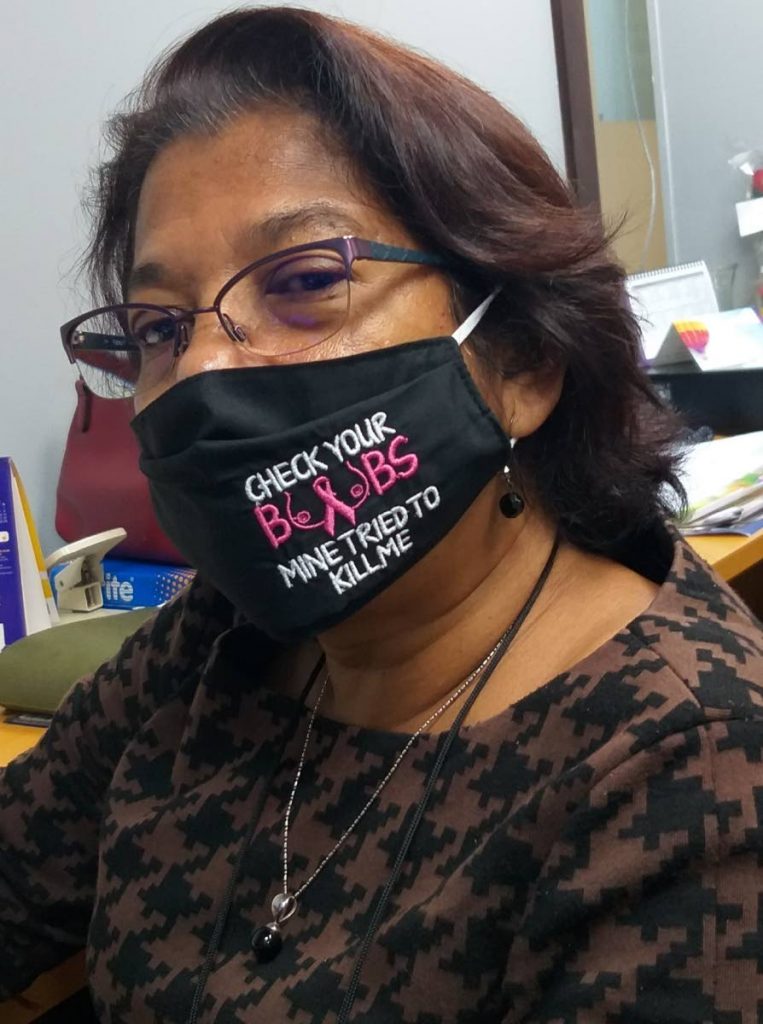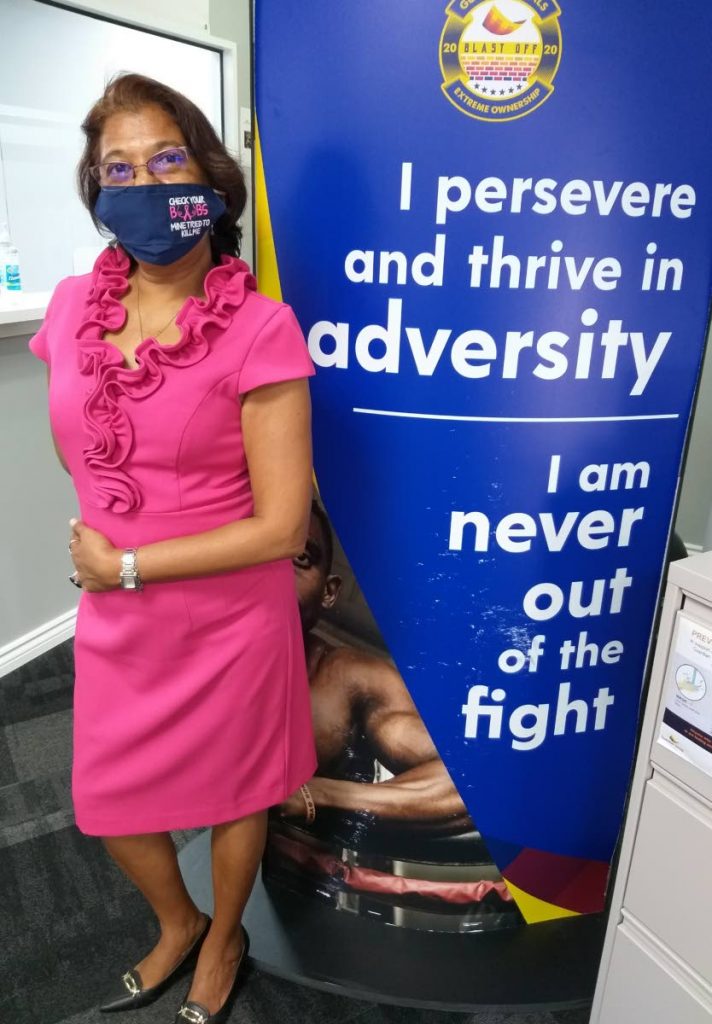Covid19 and cancer survivors: 'It's a scary time'

The covid19 pandemic has been scary for cancer survivor Ann Marie Seebaran, 63.
“As survivors, our immune systems are compromised, even after all these years," she explained, "so we have to be very careful."
Covid is also a concern because survivors already have so many different issues and side effects to deal with.
"I still get tired quickly and feel very drained, so things are difficult. I don’t know what will happen if I get it, but I’m trying my very best to cope and be positive.”
In addition to her worry about contracting covid19, the health restrictions have affected her.
She said sometimes when she wears a cloth face mask for long periods, she gets headaches, which ease when the mask is removed.
“I don’t like wearing the masks, because they are uncomfortable, but everybody has to do their part. I buy colours to match my clothes and those with designs to make up for it.”
Also, her grandson attends school online, and after a long day at work, she has to cook for him and help him with schoolwork, making her more tired.
In March, during the lockdown, she was temporarily laid off for three months, and then told the company was not taking her back. Thankfully, two weeks later, she was rehired.
“God is good. I have faith. I thank God every day, because I see how many people are losing their jobs and are generally having a difficult time.”

Seebaran learned she had stage one breast cancer in October 2004, after accidentally finding a lump in her breast. She was lying down at home with one arm behind her head and the other resting on her breast when she felt it.
It was a real shock when she was diagnosed. She had to do six rounds of intensive chemotherapy as well as radiation.
While the radiation went well, chemotherapy left her tired and weak. She suffered from memory lapses, nausea, hair loss, constipation for five days after treatment, followed by diarrhoea, which led to haemorrhoids, and her finger- and toenails turned black. She also had no feeling in her tongue, as well as painful sores in her mouth, and her gums began to separate from her teeth and bleed.
At first her dentist thought she had some kind of oral cancer, but after seeing a specialist, that was ruled out and it was determined it was a side effect of the chemo.
Since then, Seebaran, a single mother, has had to make some changes in her life. She tries to stay away from processed foods, and limits her red meat intake. She also tries to remain as stress-free as possible, because chronic stress could put anyone's health at risk.
“Once you are alive, there is always something to worry about, so it’s hard to do. Whenever negativity sets in, I have to keep telling myself to stop it, because it’s not good, and try to think positive. I also try to be a better person and not take anything for granted.”
About two months ago, Seebaran got a bad back pain that did not go away. She had not hit her back or fallen down, but the pain was so bad she could hardly move. She forced herself to take public transport and go to the doctor. There, she had an ultrasound and an x-ray but nothing unexpected was found.
“I thought it could have been something related to cancer, the way the pain just came on suddenly and so intensely. It was really scary.”
Even after 16 years cancer-free, she said whenever something happened with her health, she was still afraid that it could be a recurrence of cancer.
But she said those who have been recently diagnosed need not be afraid, because cancer was not a death sentence. Instead, she encouraged them to do what they had to do to survive.
She added that support is very important. Even if they had family and friends, she suggested they contact the Cancer Society, which could put them on to survivors for help, guidance and understanding.
She also encouraged those going through treatment and survivors alike to stay positive, try to be stress-free, and pay attention to their bodies. They should not ignore aches, pains and irregularities, and do regular check-ups, she said – and live life to the fullest every day, as tomorrow is promised to no one.


Comments
"Covid19 and cancer survivors: ‘It’s a scary time’"